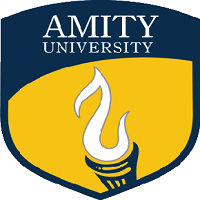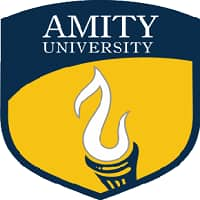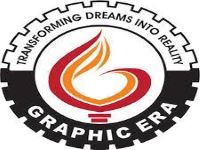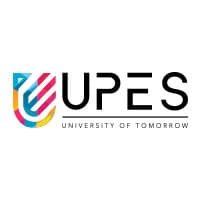DA-IICT B.Tech Admissions 2025
Highest CTC - 82 LPA | Average CTC - 18.25 LPA | NAAC Grade A+ Accredited
Electronics and Computer Science are two major specialisations in engineering that are closely related. A BTech in Electronics and Computer Engineering, as the name suggests, integrates the disciplines of electronics and computer science and is a four-year programme. Around 60 colleges in India offer B Tech in Electronics and Computer Engineering.
A B.Tech in Electronics and Computer Engineering provides advanced knowledge in both fields of Electronics Engineering and Computer Engineering. The curriculum includes subjects such as programming languages, data structures, analogue circuits, compiler design, robotics, mobile communication, and operating systems.
Graduates can pursue various job profiles such as IoT Developer, Network Engineer, VLSI Engineer, Embedded Engineer, Software Engineer, and Database Administrator. The average course fees to pursue B Tech Electronics and Computer Engineering range from Rs. 15,000 to Rs. 19.0 lakhs, depending on the college choice.
Particulars | Values |
|---|---|
Course Name | B Tech Electronics and Computer Engineering |
Course Level | Undergraduate |
Course Duration | 4 years |
Eligibility Criteria | 10+2 with PCM |
Admission Process | Entrance Exam/Direct Admission |
Average Course Fees | Rs. 15,000 to Rs. 19.0 lakhs |
Job Profiles | IoT Developer, Network Engineer, VLSI Engineer, Embedded Engineer, Software Engineer, and Database Administrator |
Average Salary | Rs. 6.0 LPA |
Top Recruiters | Wipro, HCL, DRDO, ISRO, Dell, Infosys, Havells Limited, Lenovo |
If candidates want to enrol in this BTech degree, they need to meet the requirements first. The B Tech Electronics and Computer Engineering eligibility criteria include:
| Particulars | BTech Electronics and Computer Engineering Eligibility Criteria |
|---|---|
Eligibility criteria | 10+2 in Science stream from a recognised board in India |
Minimum marks | 50 per cent marks in |
Subjects required | |
Entrance Exam | JEE Main, JEE Advanced, BITSAT, SRMJEE, VITEEE, WBJEE, KEAM Exam, MHT CET |
Candidates need to follow certain steps for B Tech in Electronics and Computer Engineering admission. It can vary for each college, but a general procedure is listed below.
The entrance exam is a gateway for admission to B Tech Electronics and Computer Engineering courses in many top universities. However, some can even provide merit-based admission. Check the table below for the relevant entrance exam information.
Exam Name | Conducting Body | Exam Schedule |
|---|---|---|
NTA | ||
Karnataka Examinations Authority | ||
GSHSEB | ||
GGSIU | ||
State Common Entrance Test Cell - Maharashtra State | ||
NTA | ||
SRM University |
It is important to know the BTech electronics and computer engineering syllabus before admission. It will give students an overview of the topics they will be studying over the next four years. The BTech electronics and computer engineering syllabus taught at YMCA Faridabad is listed below.
Semester 1 | Semester 2 |
Physics (Waves and Optics) | Mathematics-II |
Mathematics-I | Basic Electrical Engineering |
Engineering Graphics & Design | Chemistry |
Programming for Problem-solving | Workshop- II |
Workshop- I | English |
Labs | Labs |
Semester 3 | Semester 4 |
Digital Electronics & Computer Organization | Digital Communication |
Semiconductor Devices | Analog Electronics Circuits |
Object Oriented Programming using C++ | Microprocessors & Its Application |
Analog Communication | Data Structure using Python |
Circuit Analysis and Synthesis | Digital System Design & Applications |
Mathematics-III | Theory of Signal & System |
Indian Constitution/ Essence of Indian Traditional Knowledge | Biology |
Electronics Project Workshop-I | Electronics Project Workshop-II |
Labs | Labs |
Semester 5 | Semester 6 |
Embedded System Design | Mobile Communication |
Database Management Systems | Digital Signal Processing |
Operating System | Computer Networks |
Integrated Circuit Design | Message of Bhagwat Gita |
Environmental Science | Program Elective-I |
Open Elective-1 | Program Elective-II |
Project Workshop-III | Open Elective -II |
Labs | Project Workshop-IV |
- | Labs |
Semester 7 | Semester 8 |
Program Elective-III | Industrial Training |
Program Elective-IV | - |
Program Elective-V | - |
Effective Technical Communication | - |
Open Elective-III | - |
Open Elective -IV | - |
Major Project | |
Project Workshop-V | - |
There is no fixed fee structure for the B Tech in Electronics and Computer Engineering course. It is decided by the governing authorities of the particular college/university. Candidates can easily find the fees on the official website or brochure of the college.
The average B Tech Electronics and Computer Engineering fees range from Rs. 15,000 to Rs. 19.0 lakhs. Private colleges generally charge higher fees compared to their public counterparts.
Graduates of B Tech in Electronics and Computer Engineering have opportunities to work in various fields such as embedded systems, telecommunications, software development, and data analysis. They can pursue roles in designing and developing electronic circuits, software applications, and network systems.
The integration of electronics with computer science skills also opens opportunities in emerging areas like the Internet of Things (IoT), artificial intelligence, and cybersecurity. If graduates want to continue their studies further; MBA, MTech, and PGD are the most chosen paths.
Graduates with the right skill set can easily find employment in private and public sectors. Listed below are some job profiles available to them.
Electronics Engineer: Electronics Engineers design and develop electronic systems and components. Their work involves problem-solving, testing prototypes, and working on cutting-edge technologies to drive innovation.
Network Engineer: Network Engineers design, implement, and manage computer networks for smooth and secure communication within an organisation.
VLSI Engineer: VLSI Engineers design and develop integrated circuits and semiconductor devices. They focus on optimising their performance and functionality.
Software Engineer: Software Engineers design and maintain software applications. Their role involves coding, debugging, and collaborating with teams to create innovative solutions and improve system performance.
Database Administrator: Database Administrators manage and maintain databases; their performance, security, and reliability. They troubleshoot issues to support efficient data management and access.
NAAC A++ Grade | Category-I Deemed to be University Grade by UGC
B Tech in Electronics and Computer Engineering offers several key benefits. It opens up a wide range of career opportunities in fields like telecommunications, software development, and hardware design. It also teaches problem-solving and critical thinking, which are valuable in any tech-related job.
With internships, workshops, and practical sessions; students are prepared for real-world challenges. High earning potential and opportunities for advancement are some other benefits of this engineering degree.
There is not a fixed salary that one will receive after graduation. It depends on many factors such as the skill set of the individual, experience, job location, employment company, and more. However, we have listed average salaries for respective job profiles.
Job Profile | Average Salary |
|---|---|
Electronics Engineer | Rs. 3.9 LPA |
Network Engineer | Rs. 4.7 LPA |
VLSI Engineer | Rs. 4.9 LPA |
Embedded Engineer | Rs. 6.5 LPA |
Software Engineer | Rs. 8.6 LPA |
Database Administrator | Rs. 11.8 LPA |
Source: Ambition Box
Private colleges provide better facilities to students hence why charge more fees. Some of the best private B Tech Electronics and Computer Engineering colleges in India are listed below.
Colleges | Total Fees |
|---|---|
Rs. 11.0 lakhs | |
Rs. 17.21 lakhs | |
Rs. 14.91 lakhs | |
Rs. 4.72 lakhs | |
Rs. 10.84 lakhs | |
- | |
- | |
Rs. 18.68 lakhs | |
- | |
Rs. 5.34 lakhs |
For most students, government colleges are the first choice for admission. The reasons are low fees, high-quality faculty, and more research opportunities. Some of the best government colleges for BTech Electronics and Computer Engineering are given below.
Colleges | Total Fees |
|---|---|
- | |
Rs. 5.34 lakhs | |
YMCA Faridabad | - |
Rs. 15,200 | |
Rs. 5.24 lakhs | |
- | |
Rs. 3.80 lakhs | |
Rs. 1.50 lakhs | |
Rs. 5.82 lakhs | |
- |
BTech in Electronics and Computer Engineering course combine elements of both B Tech in Electronics Engineering and B Tech in Computer Engineering. If students want to gain an understanding of both disciplines, this is one of the best ways to do so.
It is a four-year undergraduate programme that combines electronics and computer science disciplines.
Candidates must have passed 10+2 with Physics, Chemistry, and Mathematics, and scored at least 50 per cent marks.
Yes, Electronics and Computer Engineering has a strong scope due to its role in emerging technologies like IoT and AI. It offers diverse career opportunities in various industries and sectors.
Graduates can work as IoT Developers, Network Engineers, VLSI Engineers, Embedded Engineers, Software Engineers, or Database Administrators.
The average salary ranges from Rs. 4 LPA to Rs. 12 LPA, depending on the job profile.
Top recruiters for Electronics and Computer Engineering are Wipro, HCL, DRDO, ISRO, Dell, Infosys, Havells Limited, and Lenovo. They can also join defense, research institutions, and PSUs.
Exam Date:15 January,2025 - 30 June,2025
Others:01 June,2025 - 16 June,2025
Hello Avinash,
For BE/B.Tech admission counselling, here is a general overview of the main options and steps:
JoSAA Counselling
Covers IITs, NITs, IIITs, and other government-funded institutes.
Based on JEE Main and JEE Advanced ranks.
Usually starts in June.
Process includes online registration, choice filling, seat allotment, document verification, fee payment, and admission confirmation.
State-Level Counselling
Each state has its own counselling for seats in state colleges.
Examples:
Uttar Pradesh (UPTAC) for JEE Main qualified candidates.
Tamil Nadu (TNEA) based on Class 12 marks and reservations.
Andhra Pradesh (AUEET) with online certificate verification and seat allotment.
Registration and counselling dates vary by state.
Private University Counselling
Many private universities conduct their own admission tests and counselling.
Examples: IIIT Delhi, PES University, Chandigarh University.
Process usually involves registration, entrance test (if any), choice filling, seat allotment, and admission.
General Counselling Steps:
Register online on the official counselling website.
Fill your preferred colleges and courses.
Wait for seat allotment based on merit and preferences.
Complete document verification.
Pay admission fees to confirm your seat.
Report to the college to complete admission.
Counselling schedules and processes can change, so check official counselling authorities regularly for updates.
I hope this answer helps you. If you have more queries, feel free to share your questions with us, and we will be happy to assist you.
Thank you, and I wish you all the best in your bright future.
With a VIT Vellore entrance rank of 52,290 in slot 3, your chances for popular B.Tech courses like Computer Science, Electronics, or Mechanical Engineering are low because these usually require a better rank. However, you can look for other branches like Civil Engineering, Electrical Engineering, Chemical Engineering, or Biotechnology. These branches may still have seats available at your rank. It’s best to check the official VIT counselling website for the latest seat availability and options for your rank slot.
With a VITEEE rank of 59,290 in slot 3, getting popular B.Tech courses like Computer Science or Electronics at VIT Vellore is difficult. But you may get other branches like Civil Engineering, Mechanical Engineering, Electrical Engineering, or Biotechnology at VIT Bhopal or VIT-AP campuses. You can also try courses like BCA or B.Sc in Multimedia. Check the official VIT counselling for available seats and choose the best option for your rank.
With 74.19 percentile in JEE Main 2025, here are some good B.Tech CSE colleges in Delhi NCR you can consider:
1. Jamia Millia Islamia (JMI) – 64.6K total fees
2. GGSIPU Colleges (like ADGITM, BVCOE, MSIT) – 4.5–6.5 lakhs
3. Indira Gandhi Delhi Technical University for Women (IGDTUW) – 5.2 lakhs (for girls only)
4. GNIOT, Greater Noida – 1.4 lakhs/year
Apply through JoSAA, IPU CET, or direct admissions where eligible
Hello Alok,
Choosing between
CSE or ISE at MSRIT Bangalore
and
CSE at Amrita Vishwa Vidyapeetham Coimbatore
depends on several factors, especially
placement opportunities
,
infrastructure
,
faculty quality
, and
location advantages
. Here's a comparative overview to help you decide:
1. Placement and Package Prospects
:
MSRIT Bangalore (CSE/ISE) :
Strong Industry Connections
: MSRIT is well-known for its industry links, especially in Bangalore, the tech hub of India. The
CSE and ISE branches
have good placement records.
Average Package
: Around
Rs. 6-8 LPA
(varies with batch and skills).
Top Companies
: Companies like
Google, Amazon, Microsoft
, and local IT firms visit for placements.
Amrita Vishwa Vidyapeetham Coimbatore (CSE) :
Nationally Recognized
: Amrita has consistently been ranked among the top private universities for engineering.
Average Package
: Around
Rs. 5-7 LPA
with potential for higher packages depending on performance.
Top Companies
: Companies like
Amazon, Cognizant, TCS
, and others visit for recruitment.
2. Infrastructure & Campus Life
:
MSRIT Bangalore :
Location Advantage
: Located in Bangalore, close to top tech firms, providing ample internship and networking opportunities.
Modern Infrastructure
: Well-equipped labs and facilities.
Amrita Vishwa Vidyapeetham Coimbatore :
Strong Campus
: Known for its
lush campus
and world-class facilities.
Research Focus
: Good emphasis on research and development, which could help in higher studies and specialized fields.
3. Reputation and Rankings
:
MSRIT Bangalore
: MSRIT is a top engineering college in Karnataka with a solid reputation, especially for
Computer Science and Information Science
.
Amrita Coimbatore
: Amrita is consistently ranked highly among private institutions and has a strong focus on
engineering education and research
.
4. Location
:
MSRIT
: Being in
Bangalore
, a city with the highest concentration of tech companies in India, offers great placement opportunities and internship access.
Amrita
: Located in
Coimbatore
, it’s slightly more isolated but still provides ample opportunities through
on-campus recruitment
.
5. Final Recommendation
:
If
placement opportunities
and access to top tech companies are your primary concern,
MSRIT Bangalore
could be a better option, especially because of its location in Bangalore.
If you prefer a holistic environment with a strong research focus and are looking for a slightly less competitive environment, Amrita Coimbatore is also an excellent choice.
Ultimately, both are good institutions, but if your goal is
industry placement
, MSRIT might offer a slight edge due to its proximity to the tech ecosystem in Bangalore.
I hope this answer helps you. If you have more queries, then feel free to share your questions with us, we will be happy to assist you.
Thank you, and I wish you all the best in your bright future.

Ranked amongst top 3% universities globally (QS Rankings).

Among Top 30 National Universities for Engineering (NIRF 2024) | 30+ Specializations | AI Powered Learning & State-of-the-Art Facilities

NAAC A+ Grade | Among top 100 universities of India (NIRF 2024) | 40 crore+ scholarships distributed

Ranked #42 among Engineering colleges in India by NIRF | Highest Package 1.3 CR , 100% Placements | Last Date to Apply: 23rd June
Ranked #1 Among all Private Indian Universities in QS Asia Rankings 2025 | Scholarships worth 210 CR
NAAC A+ Grade | Ranked No.1 Private University in India (QS World University Rankings 2025)